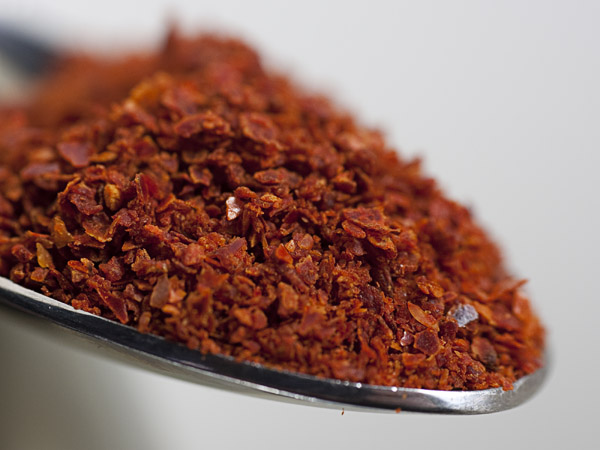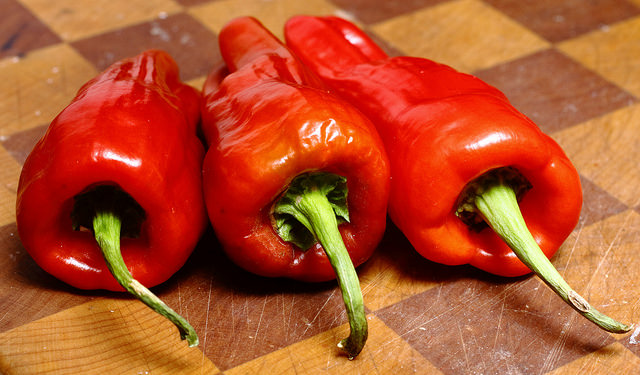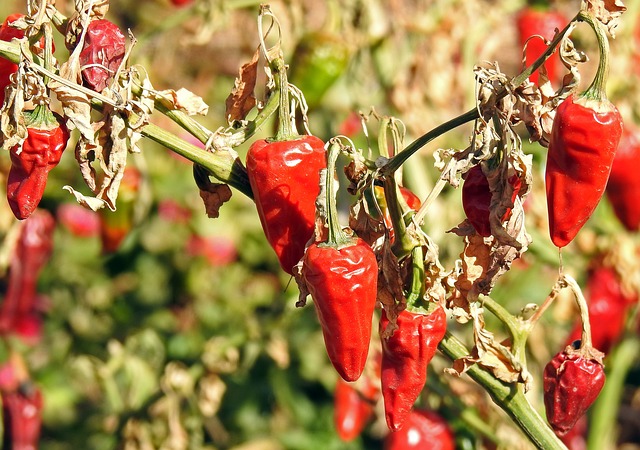The catastrophic war in Syria and the devastation of Aleppo has resulted in a shortage of – Aleppo peppers. Western chefs and gastronomists bewail the absence of the unique spice in their pantries. Yet before rightly considering that millions of displaced and starving people in Syria endure unimaginable horrors every day, consider the loss of Syrian farming land and livelihoods exemplified by the loss of this gourmet item.
Last year, the United Nations Food and Agriculture Organization estimated that between 2011 and 2016, Syrian field and tree crops worth US$903 million went up in smoke or gave out due to lack of water, fertilizer, farm equipment and government support.
This loss is part of an overall US$16 billion agricultural loss that includes livestock and fisheries. Their study indicates that it would take US$11-17 billion to get Syrian agriculture back on its feet, whenever the war ends or circumstances allow. Our eyes skim the numbers. But the mind can hardly take in the size of the humanitarian disaster. These numbers have one grim meaning: starvation.
So let’s take Aleppo peppers as an example to bring the larger picture to an imaginable size. What does it take to produce Aleppo peppers ((Arabic: فلفل حلبي / fulful Ḥalabī), those chillies with the exotic flavor no other pepper imparts?

Cookbook author Marlene Matar (”The Aleppo Cookbook”) wrote in an email interview with the NY Times that the pepper’s character is partly due to its artisinal processing. Families gather with neighbors, and the community sets to. The pepper harvest is never washed. Each pepper is carefully wiped with a clean white cloth, then cut on one side to allow the seeds to be removed.
When the peppers are scraped clean inside, they’re taken to the roof and laid out to partially dry. At the point when expert eyes judge the peppers ready, they’re ground and mixed with salt and olive oil. The salt and olive oil help to preserve the ground pepper, which is then spread out to dry in the sun again. The finished peppers’ color and flavor are uniquely Syrian, according to Ms. Matar. Chefs, restaurateurs and gourmet cooks rave about Aleppo pepper’s medium-mild heat through which tones of citrus and a tomato-like sweetness emerge.

But it takes a harvest to process the peppers. When fields are burnt and insect pests attack crops weakened by poor care, there are no peppers to harvest, or very few. Many of the families and neighbors who knew how to process the peppers are missing; displaced or dead. The very rooftops where the peppers were laid out have disappeared, crumbling into the rubble left after air strikes. Existence, in Syria, has nothing normal in it anymore.You can help rebuild homes and lives by giving to a Syria Appeal today.

Very few farms are left around Aleppo. Those who can still cultivate the peppers do, selling them fresh in the markets but mostly exporting the dried product via Lebanon and charging appropriate amounts. Some American chefs and spice merchants get their Aleppo pepper through those vendors who bring it from Lebanon: no questions asked. Seeds smuggled out by Syrian refugees provided a stock from which the peppers are now cultivated in Turkey. And Americans have acquired some Turkish seed and are now cultivating their own.

You can still buy Aleppo pepper, online (some actually from Syria itself), or buy seedlings. A quick Google search will bring the vendors up. You might consider buying Aleppo pepper from Syria a way of supporting Syrian farmers. But we urge you to do another search and donate to a respected charity dedicated to helping the war-devastated people of Syria.
:: www.nytimes.com
:: www.fao.org
Photos: Peppers on the vine by Barni1 via Pixabay; the Syrian civil war via Getty; dried Aleppl pepper flakes via www.onlyfoods.net; peppers drying by chrizzel_lu via Pixabay; fresh Aleppo peppers by jpmatth via Flickr.




